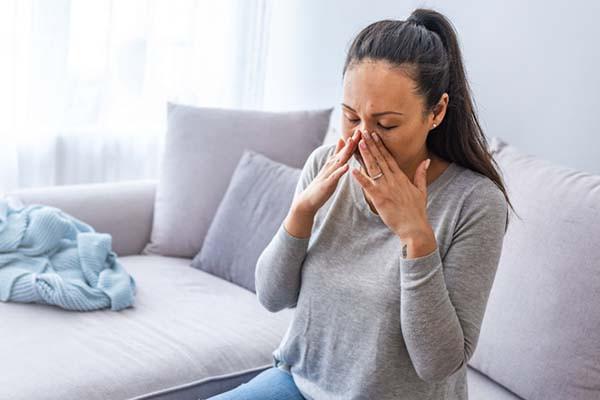
Driving with arthritis pain: Stay comfortable — and safe — behind the wheel

Daily cup of coffee may prevent afib recurrence

Gene-editing therapy lowers harmful blood fats in early study

What is EMDR therapy, and who can it help?

GLP-1 drugs versus bariatric surgery for treating obesity

Two dumbbells, three exercises, and 10 minutes

Easing the emotional burden of IBS

Modify your push-ups to meet your fitness level

What is long QT syndrome?

Stroke survivors may benefit from very low LDL levels
Sinusitis
- Reviewed by Howard E. LeWine, MD, Chief Medical Editor, Harvard Health Publishing; Editorial Advisory Board Member, Harvard Health Publishing
Sinusitis refers to inflammation of one or more of the sinuses, most often caused by infection. Sinusitis can leave you with nasal congestion, facial pain, and headaches. You may also experience loss of smell or taste, fever, cough, or bad breath.
Most cases of sinusitis are acute, meaning they last less than three weeks. Acute sinusitis may clear on its own, but home remedies and over-the-counter medication can help to relieve symptoms.
In some cases, symptoms last longer or may recur multiple times per year. This is called chronic sinusitis. With chronic sinusitis, it’s important to look for the underlying cause when possible because that is what guides treatment.


Driving with arthritis pain: Stay comfortable — and safe — behind the wheel

Daily cup of coffee may prevent afib recurrence

Gene-editing therapy lowers harmful blood fats in early study

What is EMDR therapy, and who can it help?

GLP-1 drugs versus bariatric surgery for treating obesity

Two dumbbells, three exercises, and 10 minutes

Easing the emotional burden of IBS

Modify your push-ups to meet your fitness level

What is long QT syndrome?

Stroke survivors may benefit from very low LDL levels
Free Healthbeat Signup
Get the latest in health news delivered to your inbox!
Sign Up

